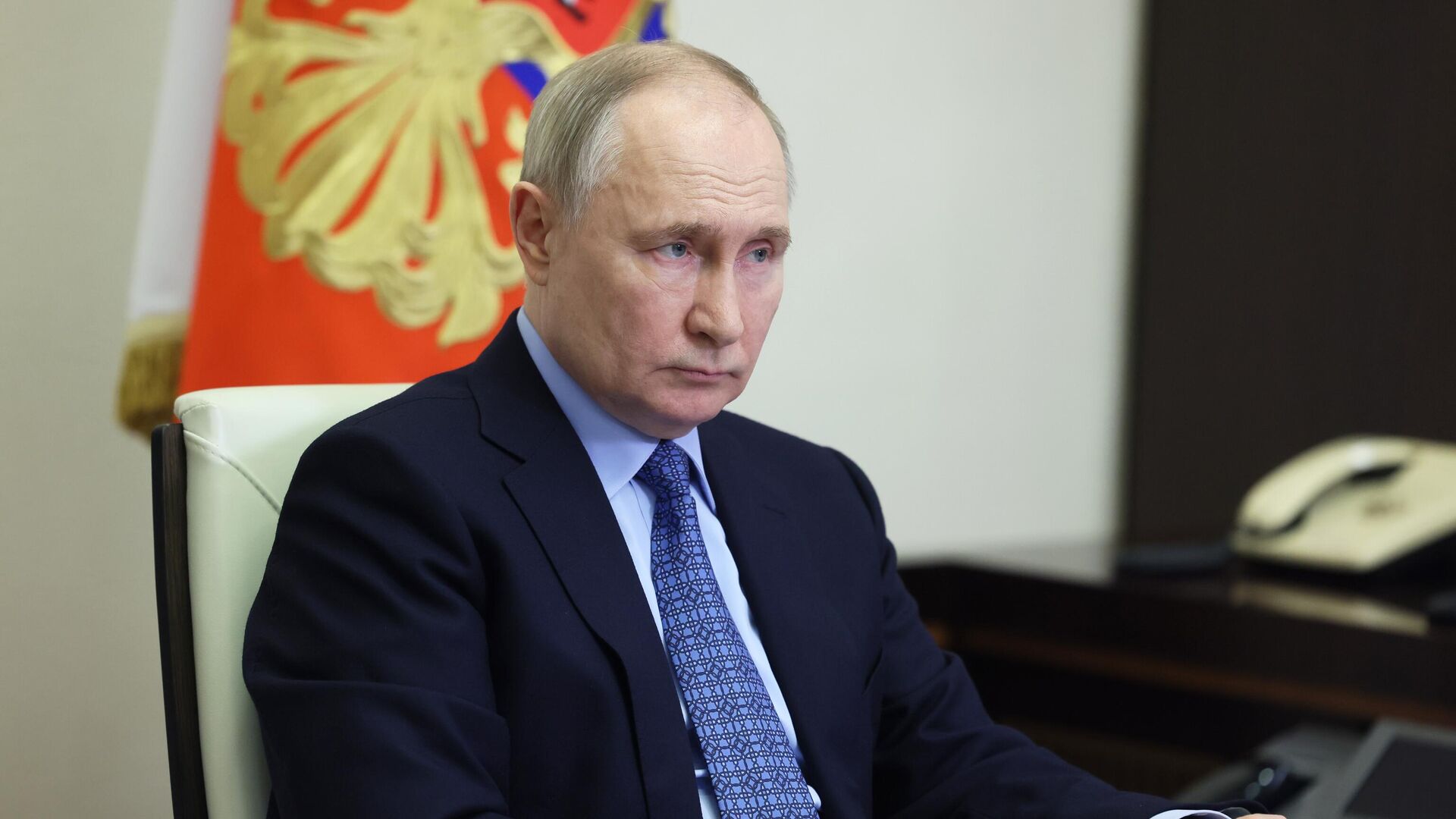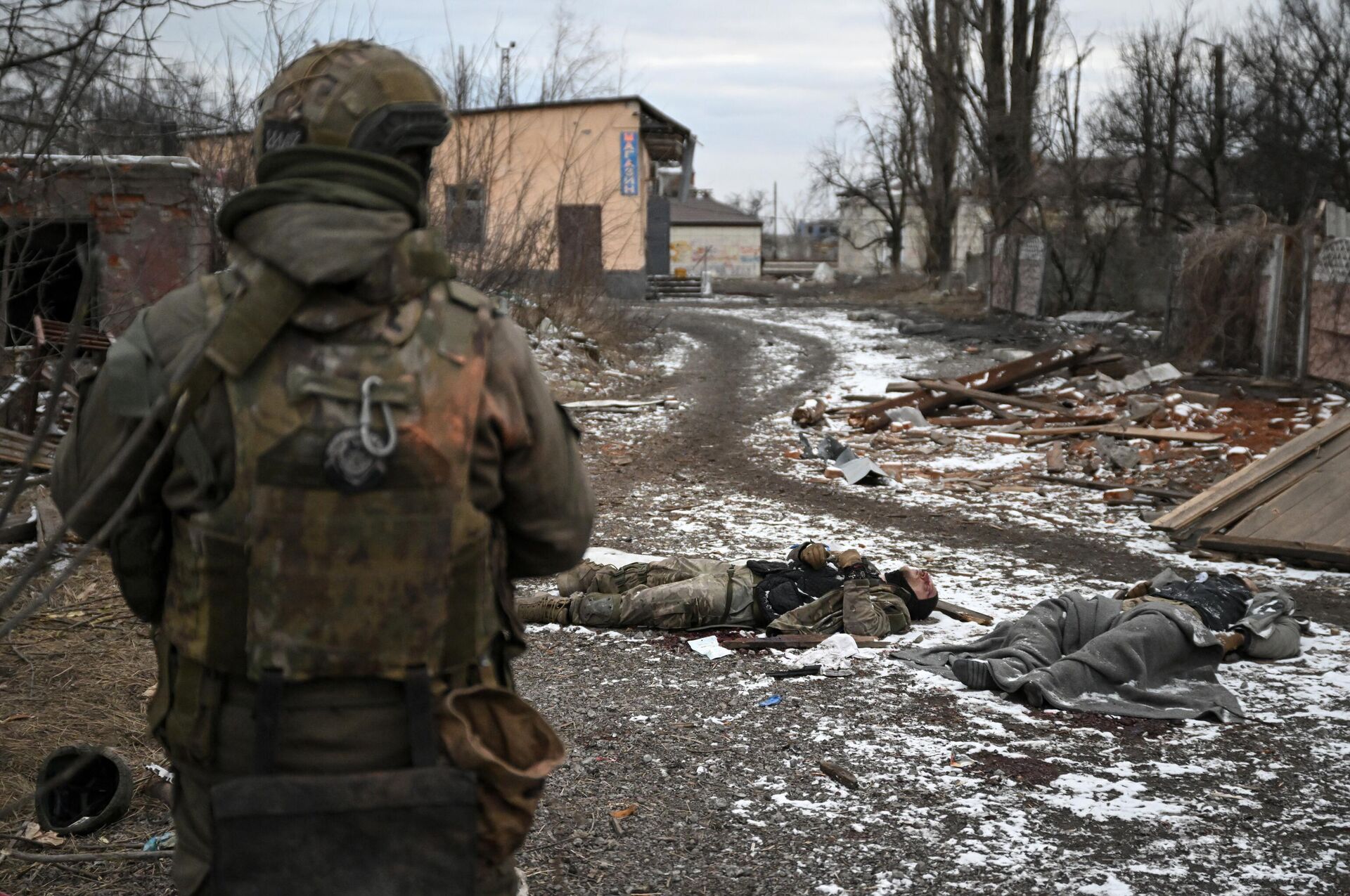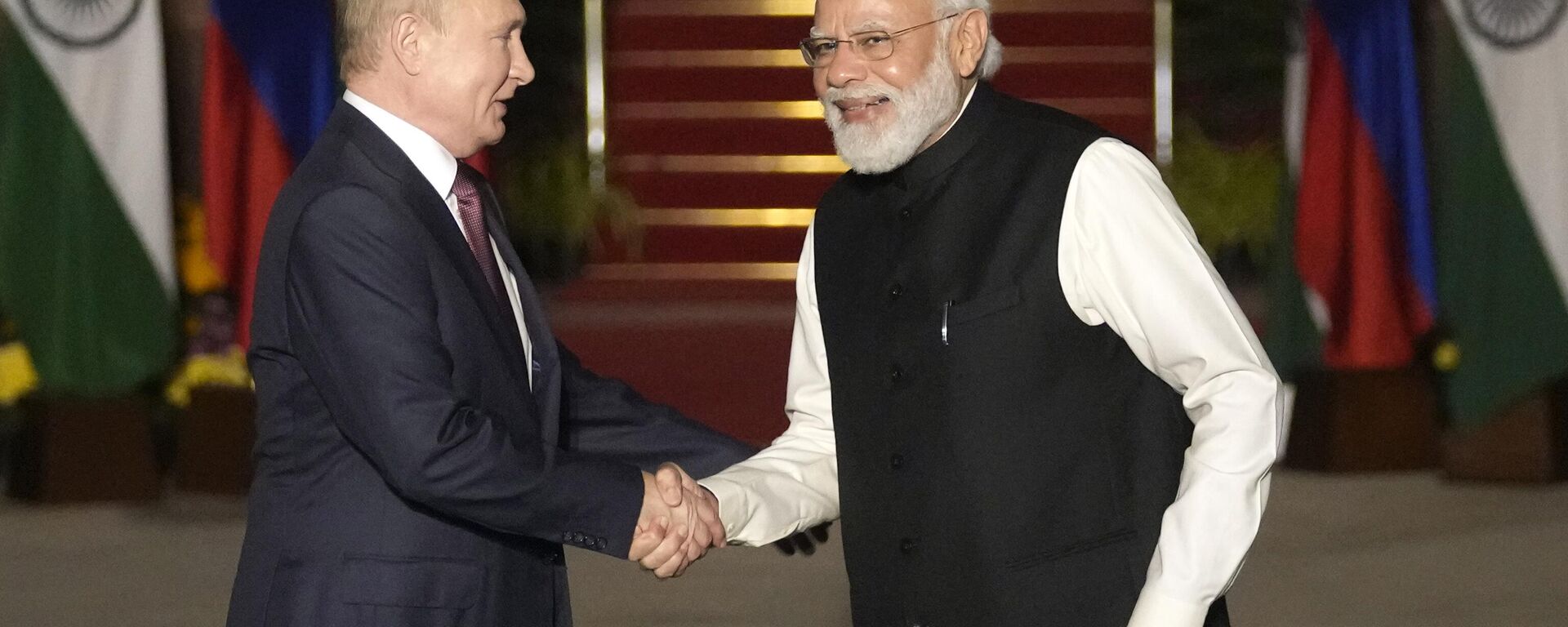To Look East or West: Russia's Eternal Problem Getting Hot Again

© Sputnik / POOL
/ Subscribe
Considering all the turbulent events taking place in the world, writer Dmitry Kosyrev takes a look where Russia is heading next.
Russia, in the worst case scenario, may cease to exist in its current borders by the end of the century, says a researcher of the VTB (Foreign Trade Bank) in an alarmist report, presented in Novosibirsk this week. The problem lays in the general trend of population’s movement, from the countryside to the cities of the West rather than of the East, says Mr. Andrei Klepach, the bank’s chief economist who authored the report.
You have probably heard that all before, the good old argument about Russia’s true identity as of a Western or Oriental nation. So many things in global politics depend on that identity, which is essentially some conviction hidden in millions of brains, and passed to next generations. Asia without Russia will be, simply speaking, much less powerful and prospering, than with it.
You look at energy supplies, brains, weapons, grain and the rest of agricultural products, and in all cases Russia makes a difference for the future of India, China and the rest.
As for the argument, I’m re-reading now a historic novel written, some years ago, by Mr. Arseni Mironov, describing harrowing events at the court of Russia’s emperors in early 18th century. That century was a time, when Emperor Peter I had forcefully opened the way to Baltic Sea for the previously landlocked nation, making Russia a European power. He also moved the capital city from the center of the state, that’s Moscow, to the newly-built St. Petersburg in the North-West.
What is less known is, that in the short reign of Peter II, one of the great emperor’s heirs, an attempt had been made to re-orient Russia, mostly in trade, to the great empires of India, Iran and China. But that meant a clash with the emerging British Empire, so the British spies were worming their way into the Russian imperial court, that had already moved back to Moscow at the time. The Brits wanted Russia to be European and under some control, with no Indian adventures being possible. All that stuff makes a wonderful background for a historical spy novel, of course, but the novel has been based on firm historical facts, too. And that was not the only case, when the Russian elites were unsure about their over-reliance on the troublesome and unfriendly Europe.
Going back to the report of Mr. Klepach, it is essentially analyzing the trends of the Russian population movement. It would be fun to compare the difference between India and Russia, not to mention China. There are nations where people currently love staying in place, and the nations where they love moving, inside their own national borders and outside of those. Russian public obviously hates staying put.
Yet another research, done by the nation’s top polling agency Russian Public Opinion Research Center (RPORC), shows that two thirds of the current inhabitants of the nation have at least once in a life packed up and went somewhere else. Mostly the people do it after graduation from secondary schools. Only a quarter of these young migrants come back after a short period of time.
The VTB report notes that, between 2013 and 2022, the flow out or rural areas around the Volga river was up by 403%, from Siberia 247%, and from the Far East 190%. That did not prevent Russia from becoming, in the same period, a great agricultural nation, feeding the world with grain, milk and thousands of products. But the problem is, that formerly agricultural population is mostly moving West, closer to Moscow and Europe in general.
The result is a nation with a huge head, looking West. Up to 75% of intellectual resources is concentrated only in 10 of the 89 regions, and these are, again, mostly in the West with the exception of Novosibirsk. The overall trend leads to uncontrolled growth of huge European cities, like Moscow, with its high prices, low birth rates, restless population and the rest of well-known horrors.
This and many other reports are offering solutions to the problem, discussing investments and other measures for, simply speaking, reversing the population flows in Eastern direction. Some extremists even suggest moving the government to Siberia, although they know well it won’t happen.
Far as I know, it’s a bit similar to North and South of India, or China’s south-east provinces against the rest. The difference with Russia is, that the best brains in our country are currently planning the turning of the population tide, tying it up with the obvious decline of the West (Europe first of all) and the bright prospects of the East. We are talking about the attempts to plan the future of Russia for decades ahead, and the mentioned Klepach report is by far not the only product of that massive brain storm.
The first and the most obvious problem here is the so-called New Territories, that used to be the East of Ukraine. These territories, simply speaking, will be holding national attention and drain resources for some years to come. And that reality is clashing with the views of those who are laying plans for investments in the necessary drive to the East, notes the same VTB report.

A Russian serviceman of the Central Military District stands next to bodies of dead Ukrainian soldiers amid Russia's military operation in Ukraine in the town of Avdeyevka near Donetsk, Donetsk People's Republic, Russia
© Sputnik / Stanislav Krasilnikov
/ What happened to Ukraine, if you look at the events there from the angle of population movement? Simply speaking, the Russian-speaking East down there was moving to Russia, mentally and physically, while the West was moving westwards. When that slow-burning inter-Ukrainian civil war entered the really hot phase between 2014 and 2022, with the Russian troops moving in to prevent the butchery of the East, up to 6 million of East Ukrainians escaped to Russia. But a lot of them are or will be coming back, now when everyone is only discussing the terms of the future peace agreements, not the inevitability of these. In any case, Ukraine has already lost many of its Eastern territories, and is likely to lose more.
Russians are cautiously flocking to these territories even now, meaning the people even from Siberia and the Far East. The locals are full of new plans for the future, too. The showcase of these plans may be the city of Mariupol, devastated by hostilities in 2022, but now mostly restored to its former beauty and glory. But, all in all, the distant future of these territories is about the future of Europe, not Asia.
Europe and the global West has shown clearly that it did not need the industrial Ukraine, the Ukraine like it was in the times of the USSR. Hence the violent rejection of these territories, with the typical lifestyles and ideas of their population, by the pro-Western governments of Ukraine after 2014. But, the problem is, agricultural Western Ukraine has also proved to be not really needed by Europe, which is illustrated by farmer’s demonstration in Europe even now. The farmers demand putting limits to Ukrainian grain and other commodities exports. All in all, it all boils down to the question of what Europe is going to be like in the coming decades. That question is far from clear, and in any case Europe is highly unlikely to be an engine of growth for Ukraine, Russia or anyone at all.
All these turbulent event mean that Russia, and not only Russia, is facing decades of choices of orientation, just like it was in distant centuries, so vividly depicted in historical novels. The writers of the future will surely have fun, producing even more novels on these subjects.

